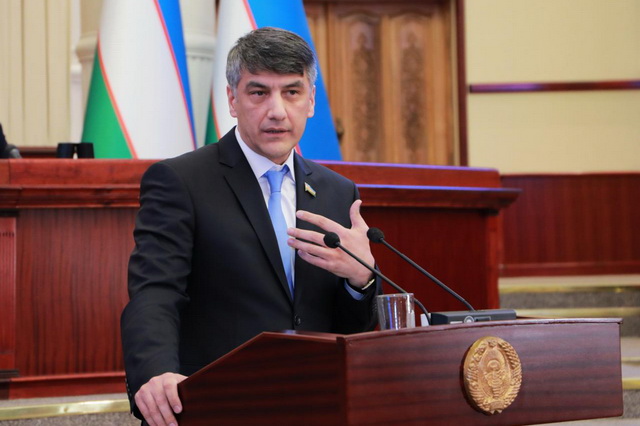
Alisher Kadyrov: Political parties in Uzbekistan depend on state funding
Alisher Kadyrov: Political parties in Uzbekistan depend on state funding
Tashkent, Uzbekistan (UzDaily.com) — The leader of the "Milliy Tiklanish" party, Alisher Kadyrov, stated that the primary source of funding for political parties in Uzbekistan is the state budget. In his opinion, if voters were more actively engaged in supporting parties, they could be financed through membership fees and sponsorship donations.
Speaking on the podcast "Opinion Leaders," Kadyrov explained that political parties become more active during election periods, as the state allocates funds for campaign activities. However, once the elections are over, this funding ceases, directly impacting the level of activity parties maintain in society.
He noted that parties can receive funding from three sources: membership fees, sponsorship contributions, and state financing, which depends on election results. At the same time, foreign funding is prohibited, as political parties are institutions that influence state policy.
Kadyrov also pointed out that out of Uzbekistan’s 22 million voters, only around 2 million are registered members of political parties, and in the past, many people were included in party lists automatically. After a thorough review and removal of inactive members, party membership numbers decreased significantly.
The Milliy Tiklanish leader also touched on the issue of political awareness, highlighting that many voters do not fully understand the role of deputies and often expect them to address everyday municipal issues, which actually fall under the jurisdiction of local kengashes (councils).
Additionally, he mentioned that his party’s faction has five major sponsors from among entrepreneurs who support its ideas without directives from above.
Responding to a question about deputies' perceived inactivity after elections, Kadyrov argued that parliamentary work continues, but voters are not always well-informed about it. As an example, he cited a situation regarding amendments to the Labor Code, which, in his party’s view, infringed on employers' rights. Milliy Tiklanish opposed the bill, and as a result, it was sent back for revision, though this process did not receive much public attention.
In conclusion, Kadyrov emphasized that the development of political institutions is an ongoing process and that both parties and voters must become more engaged in the country’s socio-political life.